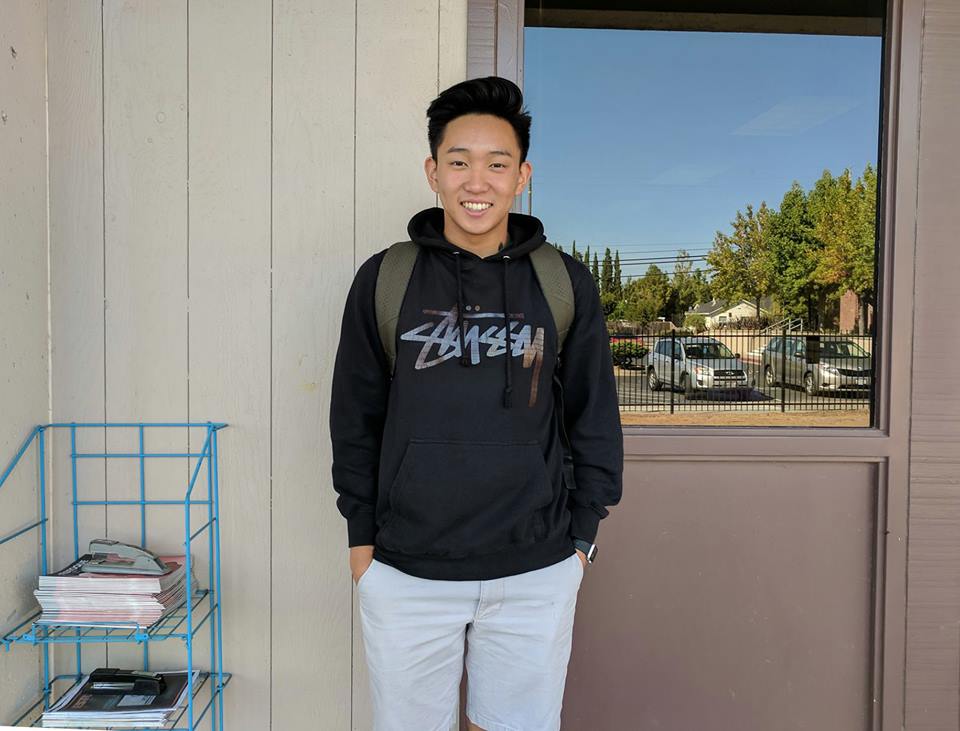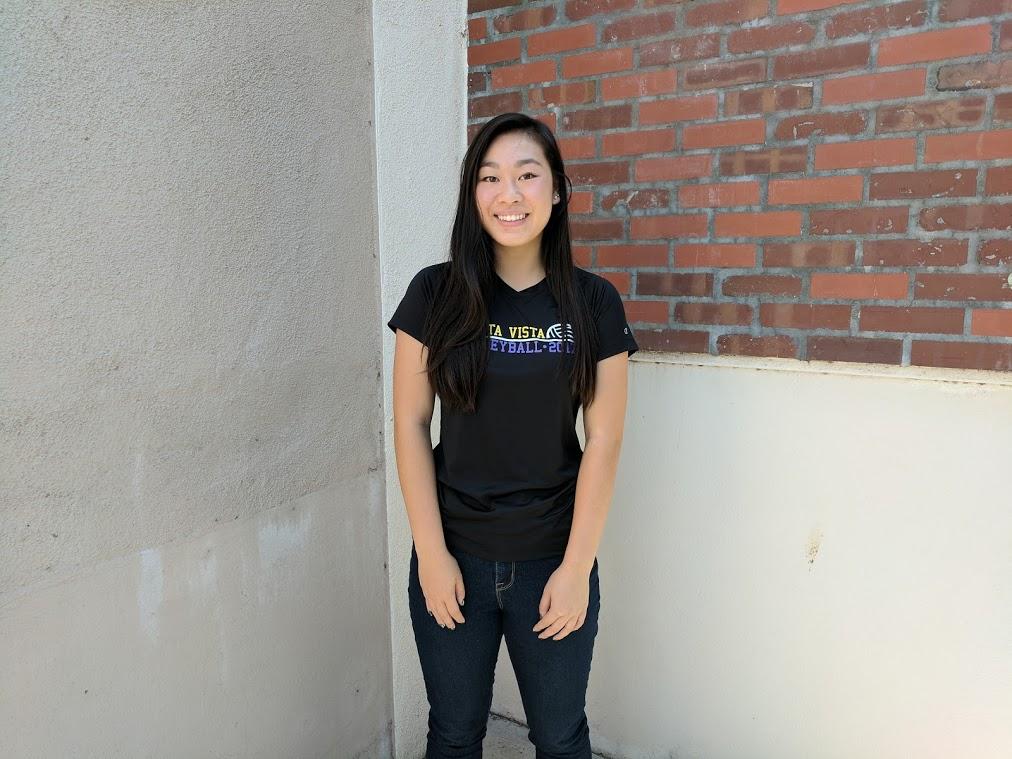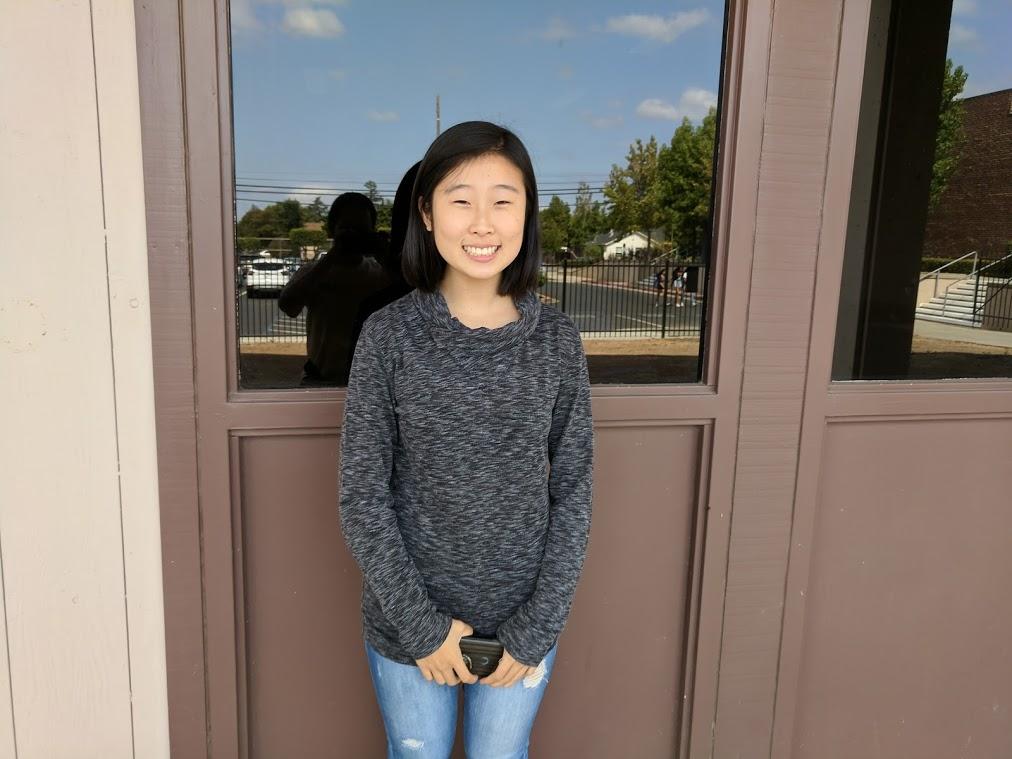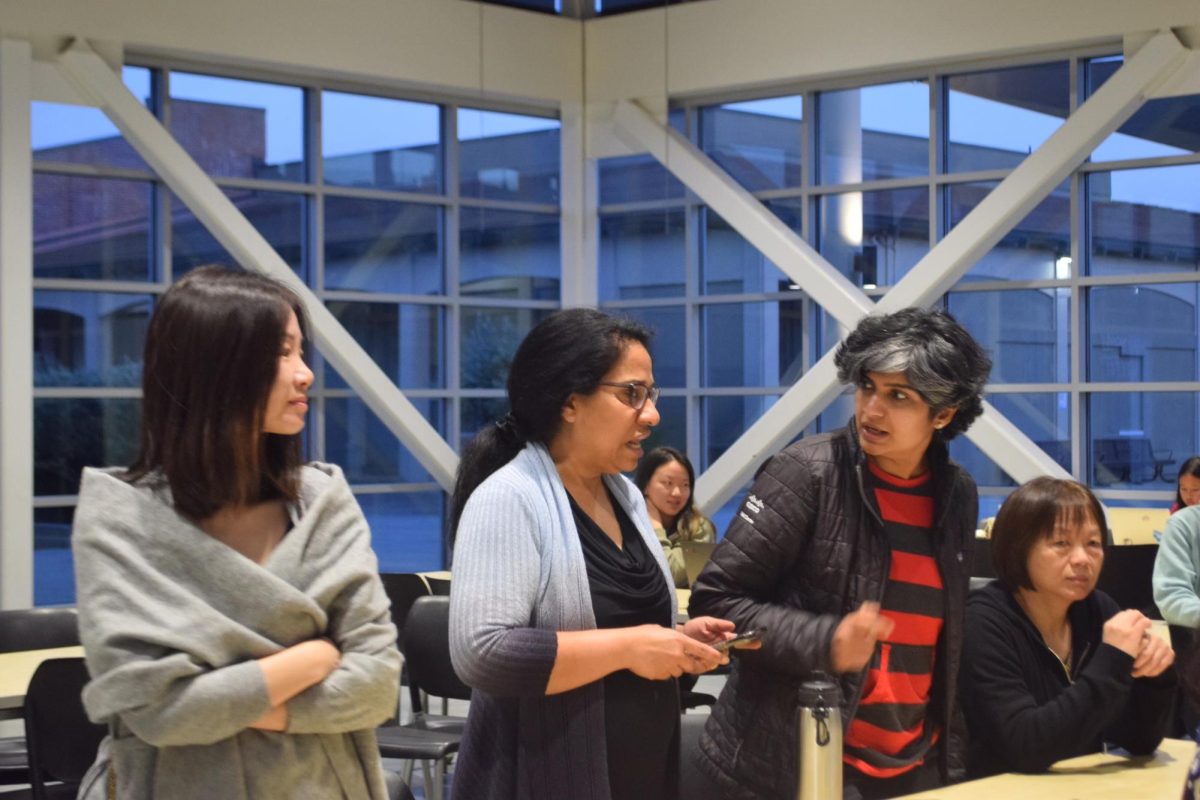Here at MVHS, one religious focal point is Roots Christian Club, which meets every Monday at lunch in C106. The club hosts and attends special events, such as having lectures from pastors and going to Unity in Christ conventions. UIC meetings give Roots the opportunity to interact with other Christian clubs across the Bay Area and join them in worship and relaxation. Read below to learn more from some of the officers in Roots.
President and senior Kevin Tong

Junior and IT expert Emerald Lam

Sophomore and secretary Yoanna Lee

El Estoque: What has your history been with the club?
Kevin Tong: So, I started going as a freshman, as a member. And it wasn’t till junior year that I became an officer. I really just wanted to seek a community of people that believe in the same faith [as me] at [MVHS].
Emerald Lam: I’ve been a part of Roots my whole high school career, I guess. So I started in freshman year and then last year, my sister was an officer, so I was a part of her small group, and this year I’m an officer, so it’s been cool. My sister was the IT guy, so then I just thought it’d be kind of fitting to have a legacy, so I picked it.
Yoanna Lee: And we have, well now it’s called UIC, which is like a praise night, essentially, but then it was called IDC, and when they first started doing it they invited the high schoolers within the Bay Area, and invited Kennedy Middle School, which is the only middle school [there]. So because of that, I got to know some of the Roots people, and then when I was a freshman I was a member of the club, consistent member of Christian club for Roots, so I just decided I’d try out for being an officer, and I got in.
EE: What do you enjoy about your position?
KT: What I enjoy is that I know that what I do makes an impact on people’s lives. Being an underclassman, I knew that the officers [and] what they did really impacted me. So now being in a position where I am, I know that I can be an influence to others, which is probably the most rewarding thing about doing what I do.
EL: I love just having free reign over what you can say, because on our Facebook, we just have these reminders for meetings, so I can be as crazy as I want to, or put as much information as I want to, so it feels good to control.
YL: I guess, not in terms of position, but [what] I really like about being within the leadership is that I feel like I actually have a voice in what goes on in the club. So things that I previously found, not questionable per say, but things that I maybe didn’t like, or things that I did like, I have a voice in saying them.
EE: What are your plans for the club this year?
KT: We’re trying to implement this new thing. It’s one week of apologetics, and we’re having a pastor come and speak about it for an entire week. And we’ll see how that goes, because it’s our first time doing it.
EL: Our main focus for this year is trying to slowly evangelize and use what we know to show people that Christianity is not a blind faith. We’re doing a lot of outreach for people who don’t really believe in Christianity it’s kind of just a place to come and learn and ask questions. If they have a lot of questions on scientific or historical backgrounds, then that’s what we’re trying to get at. Testifying that our faith is not blind, it’s an actual thing
YL: Another event that we’ll actually be having is called ‘Why Jesus?’. It’s gonna be a one-week event in [MVHS], and this speaker named Pastor Brian is going to be coming, and it’s gonna be one week every single lunch, and it’s going to be talking about the Apologetics, which is essentially the science behind it. For example, the first day will be ‘Jesus on trial’. Is it historically accurate?
EE: What has your history been with Christianity?
KT: I grew up in a Christian household. I’d say I was forced to go when I was younger, but I’d like to think that I found the faith myself, because there’s only so much your parents can do to make you go to these certain things, but it really depends on your decision and your want. [That point of realization] probably came to me in middle school. That’s where I was struggling a lot with myself, my identity. Definitely, a bunch of good mentors and a bunch of good people discipled me and lead me to Christ.
EL: Christianity has always been in my life, because both my parents are Christian, and I’ve grown up in a church, basically.
YL: Well, I was born and raised in a Christian family. My father and mother are both pastors, so I was born culturally Christian. Culturally Christian, it was more blind faith, like ‘Oh, my parents believe in God, so I’ll believe in God’. But then, when I was in fifth grade or sixth grade, that’s when I really started to question my faith, like ‘Science says this, can my faith be proven true?’ Especially because in this area, there are so many atheists, agnostics and other religions in such a democratically free area. There’s a lot of questions going on, like ‘Hey, is this faith real?’ and I started to really, really question ‘Is what I believe in something absolutely ridiculous and stupid and unreasonable?’ And that’s kinda when I started to do my own research . . . I started reading books like crazy, watching lots of people, hearing people speak about different topics, and for me, I personally came to the conclusion that I think Christianity is a worldview that is very much logical, very much not just superstitious and out there. It’s something that can be reasoned with, can be argued for, and I personally think that I really am a true Christian by my own choice, not as a culture.
EE: What does Christianity mean to you?
KT: I think Christianity is definitely more than a religion. It is more of a relationship with God and the people, your brothers and sisters … I guess the cheesy answer is it means everything to me, it’s my identity. Because I’m Christian, because I have that faith, I know that everything, I do, everything that happens to me, is for a purpose. It really shapes the way I think about life, because I have a lot less doubt, a lot less fear in me because I feel like I’m in control, in a sense.
EL: Christianity is basically like a lifestyle now. It’s kind of a normal thing for me. It’s not just that we love God, but it’s also a part of lifestyle and morals. I believe in being a good person, and trying to make a positive impact rather than a negative one, because I feel like even if nothing really comes out of it, at least I was a good person. At least I tried.
YL: For me, Christianity is basically my life, that’s what I honestly believe. It’s something that’s so influential and so big.
EE: If you had one thing to say to people who are hesitant towards the club, or Christianity in general, what would it be?
KT: Our club is definitely open to everyone. A lot of the time when we have speakers come over and speak, they speak about a lot more broad topics that aren’t so Bible-focused, but more life focused. For example, a couple years ago, we had someone talk about relationships and stuff like that. It’s definitely a club that you can come to if you want to seek community and seek people who will accept you for what you are, no matter what.
EL: Come to Christian club, definitely. We would love to hear it, we have a lot of pastors coming and talking about hot topics that I think a lot of atheists would really benefit from hearing.
YL: Well, first of all, it is a free country, you do have the right to believe in what you believe in. Naturally, those are rights. That’s also, for Christianity, we do think we have to love one another and not [discriminate]. I just want to say that if you are interested, you shouldn’t be afraid to look deeper into it, because for me, when I was really starting to question my faith . . . I was scared to look into my own faith. I didn’t want my own faith to be disproven . . . Most people don’t talk about this, but I don’t think you should ever be afraid to look for what you think is true.













